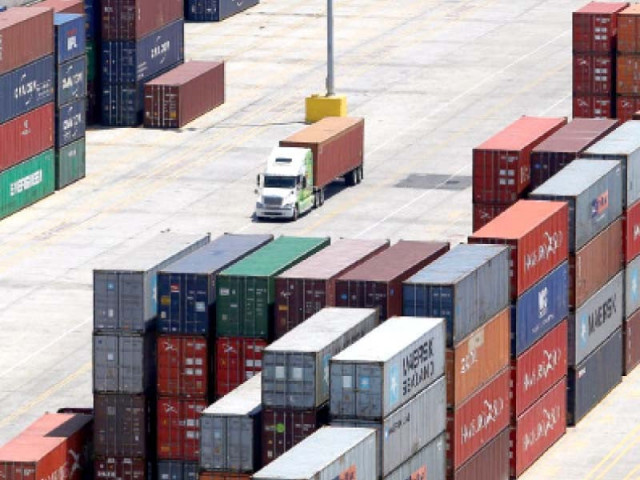Ministry seeks resolution of container shortage issue
Pens letter to maritime division to address the problem

In a bid to resolve the issue of non-availability of export containers, particularly for rice traders of Pakistan, the Ministry of Commerce has penned a letter to the Ministry of Maritime Affairs and requested it to address the problem.
Earlier, the Rice Exporters Association of Pakistan (REAP) had told the commerce ministry that the shipping companies were sending empty containers back to expensive foreign destinations to secure a higher return.
Responding to their plea, the commerce division requested the maritime ministry to look into the matter and resolve the issues of rice traders.
Appreciating the move, REAP Senior Vice Chairman Muhammad Anwar Mianoor underlined that the authorities should restrict all those activities that impede the country’s exports.
“Rice is among the largest export oriented commodity of Pakistan,” Pakistan Business Forum (PBF) former vice president Ahmad Jawad remarked.
“In addition to ensuring availability of containers, the government should also work towards reduction in freight cost,” he added.
He suggested that the maritime ministry and shipping companies should jointly devise a mechanism to reduce the freight charges to help slash the cost of doing business of traders.
“The government must provide a freight subsidy to non-traditional items like rice, developmental sectors and for new markets,” he suggested.
Exports to Africa, eastern European nations and Central Asian states should be entitled to freight subsidies, said Jawad.
Rice exporters were facing difficulties in obtaining Export Refinance Facilities from their banks, he highlighted, adding that the financial institutions have attributed the delay to lack of allocation from the State Bank of Pakistan (SBP) in the current credit lines.
“This needs to be addressed by the Economic Coordination Committee,” he said.
He further pointed out that the federal government had decided to grant rice processing mills the status of industry to boost exports.
AHL Head of Research Tahir Abbas underlined that freight charges had been surging globally “and not just for Pakistan”.
“Revival of global economy post Covid-19 lockdowns has created serious disruptions in the global supply chain and triggered massive increase in freight charges along with shortage of containers,” he said. Arif Habib Commodities CEO Ahsan Mehanti stated that the country’s exports could face disruptions due to higher freight charges which could prolong to year 2023.
“Presently, containers are available at high cost that is making exports uncompetitive,” he said, suggesting that the government could seek help from overseas missions to deal with freight providers besides subsidising exports to earn foreign exchange.
“Empty containers are being dispatched to China and some other places causing a real shortage of containers,” highlighted Union of Small and Medium Enterprises (UNISAME) President Zulfikar Thaver.
“Traders are suffering due to non-availability of containers and resultantly, the shipping companies are demanding exorbitant charges for the available containers,” he revealed.
“Accordingly, the exporters add these additional charges to their products’ value, which makes their goods uncompetitive in the global market,” he explained.
Published in The Express Tribune, January 16th, 2022.
Like Business on Facebook, follow @TribuneBiz on Twitter to stay informed and join in the conversation.


















COMMENTS
Comments are moderated and generally will be posted if they are on-topic and not abusive.
For more information, please see our Comments FAQ